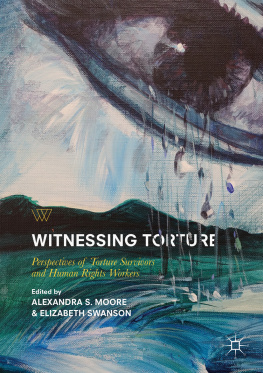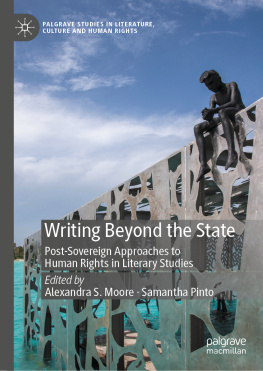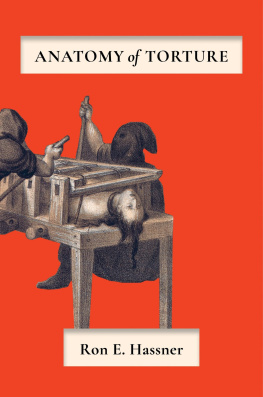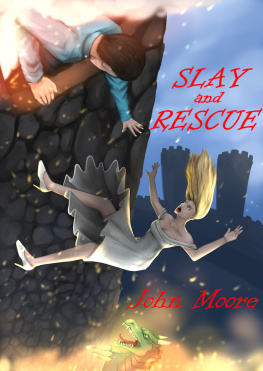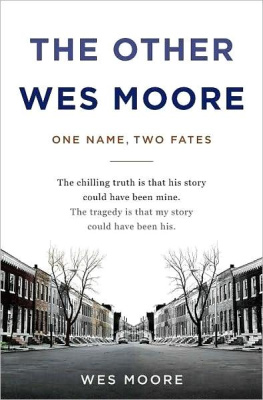Alexandra S. Moore - Witnessing Torture
Here you can read online Alexandra S. Moore - Witnessing Torture full text of the book (entire story) in english for free. Download pdf and epub, get meaning, cover and reviews about this ebook. year: 0, publisher: Springer International Publishing, genre: Politics. Description of the work, (preface) as well as reviews are available. Best literature library LitArk.com created for fans of good reading and offers a wide selection of genres:
Romance novel
Science fiction
Adventure
Detective
Science
History
Home and family
Prose
Art
Politics
Computer
Non-fiction
Religion
Business
Children
Humor
Choose a favorite category and find really read worthwhile books. Enjoy immersion in the world of imagination, feel the emotions of the characters or learn something new for yourself, make an fascinating discovery.
- Book:Witnessing Torture
- Author:
- Publisher:Springer International Publishing
- Genre:
- Year:0
- Rating:5 / 5
- Favourites:Add to favourites
- Your mark:
- 100
- 1
- 2
- 3
- 4
- 5
Witnessing Torture: summary, description and annotation
We offer to read an annotation, description, summary or preface (depends on what the author of the book "Witnessing Torture" wrote himself). If you haven't found the necessary information about the book — write in the comments, we will try to find it.
Witnessing Torture — read online for free the complete book (whole text) full work
Below is the text of the book, divided by pages. System saving the place of the last page read, allows you to conveniently read the book "Witnessing Torture" online for free, without having to search again every time where you left off. Put a bookmark, and you can go to the page where you finished reading at any time.
Font size:
Interval:
Bookmark:
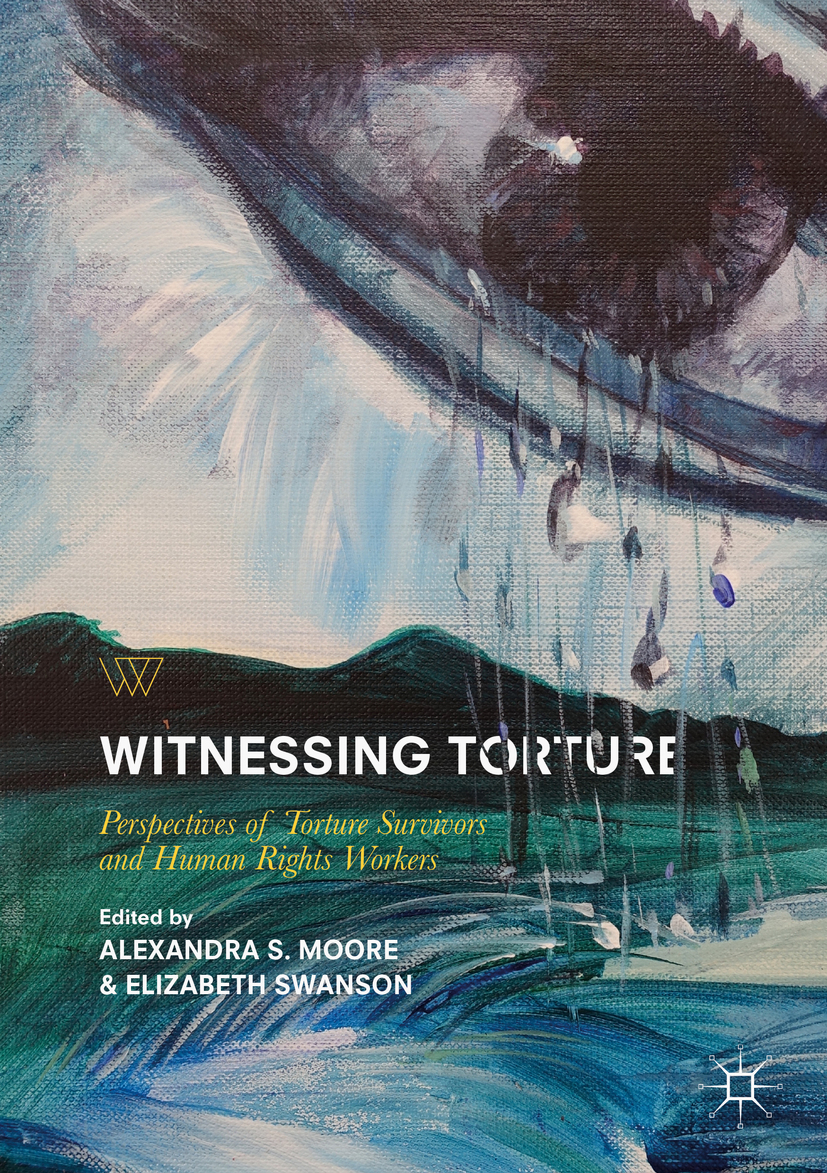
This series features books that address key concepts and subjects, with an emphasis on new and emergent approaches. It offers specialist but accessible studies of contemporary and historical topics, with a focus on connecting life writing to themes with cross-disciplinary appeal. The series aims to be the place to go to for current and fresh research for scholars and students looking for clear and original discussion of specific subjects and forms; it is also a home for experimental approaches that take creative risks with potent materials.
The term Life Writing is takenbroadly so as to reflect the academic, public and global reach of life writing, and to continue its democratic tradition. The series seeks contributions that address contexts beyond traditional territories for instance, in the Middle East, Africa and Asia. It also aims to publish volumes addressing topics of general interest (such as food, drink, sport, gardening) with which life writing scholarship can engage in lively and original ways, as well as to further the political engagement of life writing especially in relation to human rights, migration, trauma and repression, sadly also persistently topical themes. The series looks for work that challenges and extends how life writing is understood and practised, especially in a world of rapidly changing digital media; that deepens and diversifies knowledge and perspectives on the subject, and which contributes to the intellectual excitement and the world relevance of life writing.
More information about this series at http://www.palgrave.com/gp/series/15200

Cover illustration: Untitled (Crying Eye), 2016, by Muhammad Ansi
This Palgrave Macmillan imprint is published by the registered company Springer Nature Switzerland AG
The registered company address is: Gewerbestrasse 11, 6330 Cham, Switzerland
In memory of Patricio Rice and Orlando Tizon, indefatigable fighters for justice, and in honor of Sister Dianna Ortiz, beacon for the abolition of torture.
This volume is dedicated to the global community of torture survivors and to those who work with them toward restoration, redress, and an end to the practice of torture, everywhere.
For Chlo, Samantha, and Marcelle
I became involved with human rights activism at the age of fourteen, but it would be twenty-five years before I met a person who had survived torture. Many human rights activists and academics never meet someone who has survived a grave violation such as disappearance, torture, rape, or genocide, and certainly the vast majority of survivors never meet those who speak on their behalf in the arena of international human rights advocacy. Indeed, at its highest institutional levels, and in spite of the intrepid on-the-ground work of advocates and humanitarian agents, much human rights work is divorced from the intimate struggles, pain, and trauma experienced by individual humans, focused instead upon reporting on and negotiating with governments, armed resistance groups, non-governmental organizations (NGOs), corporations , diplomats, and others about the treatment of groups of people: dissidents living under repressive regimes; ethnic minorities mistreated by state apparatuses; detainees confined without trial in the war on terror; women and girls violated and oppressed the world over.
In spite of the fact that I had been an activist with Amnesty Internationals Urgent Action Network for more than twenty years, and although my professional life was focused upon teaching and writing about human rights from a cultural perspective, it was not until I was invited to participate in a panel at a One Day Forum on Torture at Catholic University in Washington, DC in June 2003 that I met a group of people who had survived torture. The events of this day illuminated significant issues regarding the relationship between survivors of human rights violations and the community of human rights activists /academics/clinicians who have not experienced such violations; such issues can best be identified through the Cartesian split between mind and body that marks the construction of these two groups in the public sphere, and that also informs the rhetorical modes in which they are known to speak most frequently. In spite of all we have learned about the limits of the philosophical division between mind and body (also responsible for separating emotion from intellect, and public from private space) from postmodernists, feminists, and multiculturalists, among others, it remains surprisingly conventional in the human rights arena in ways that correspond predictably to national, racial, and gendered identity positions.
Font size:
Interval:
Bookmark:
Similar books «Witnessing Torture»
Look at similar books to Witnessing Torture. We have selected literature similar in name and meaning in the hope of providing readers with more options to find new, interesting, not yet read works.
Discussion, reviews of the book Witnessing Torture and just readers' own opinions. Leave your comments, write what you think about the work, its meaning or the main characters. Specify what exactly you liked and what you didn't like, and why you think so.

